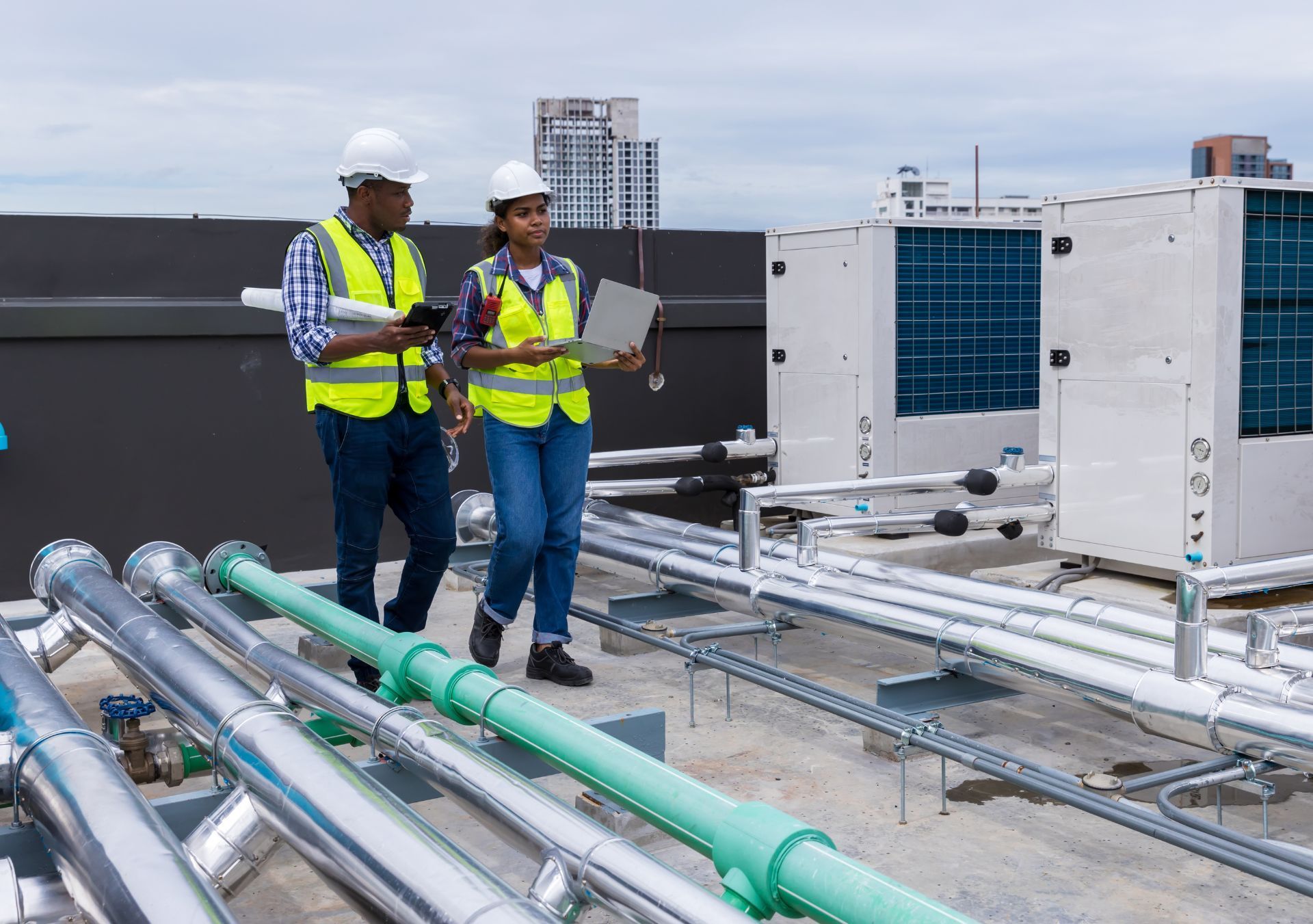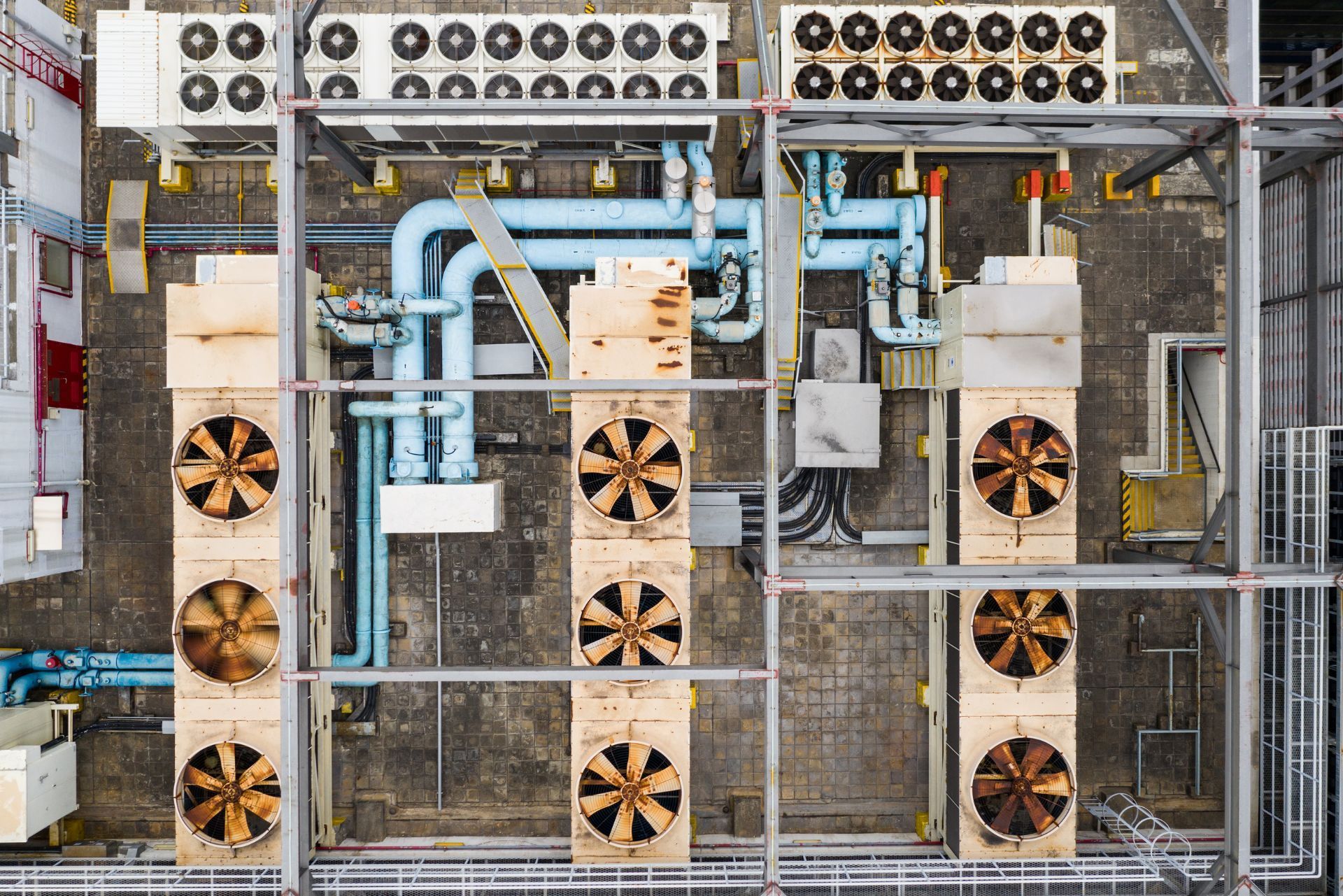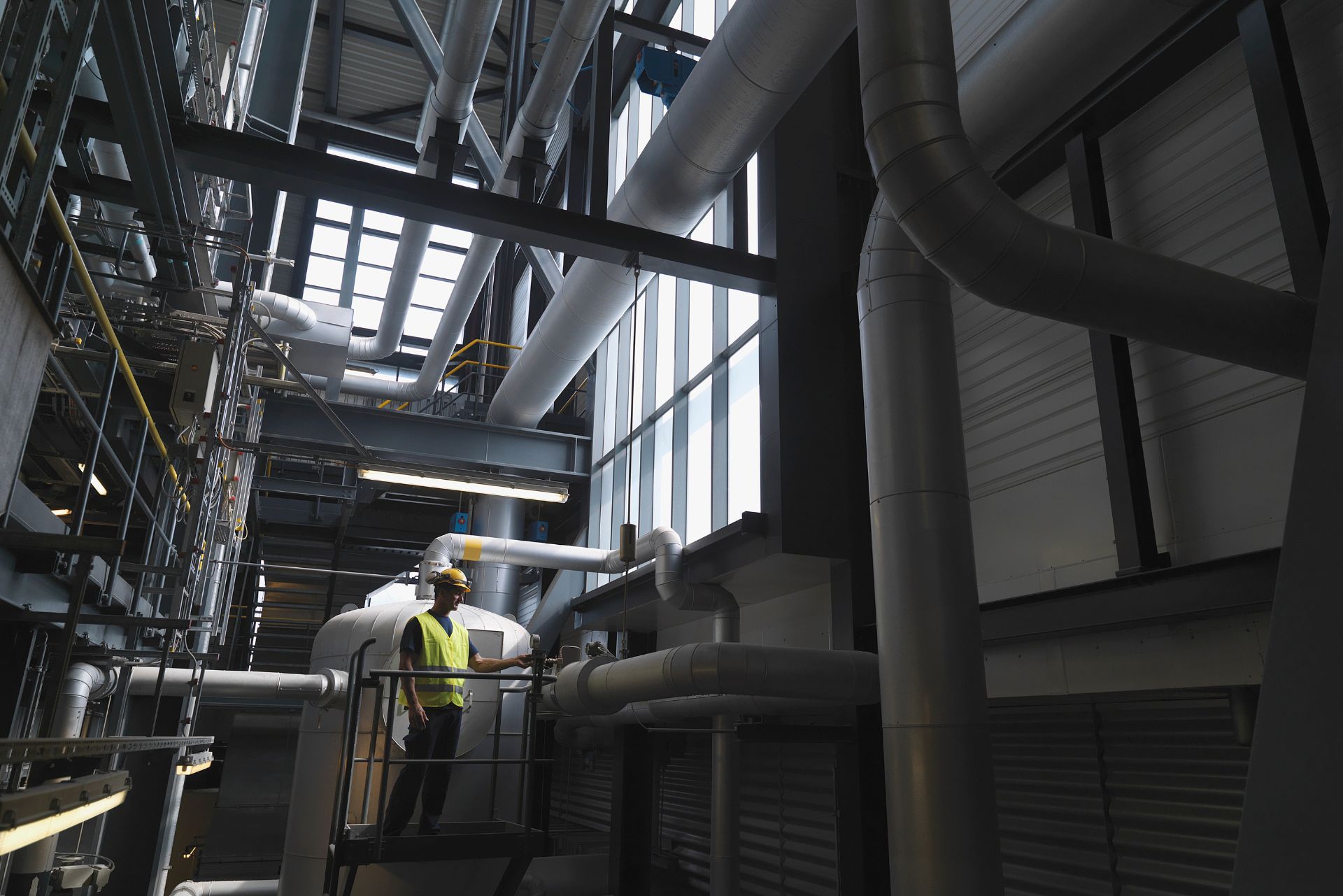Arizona Industrial HVAC Technician Insurance
See How We're Different:
or Call Us:(480) 526-3222

Most Common Business Policies
Index
Contact Us
The HVAC industry in Arizona is booming, with growing demand for skilled technicians across residential, commercial, and industrial sectors. Whether you’re an established HVAC contractor or just starting your career as an industrial HVAC technician, understanding insurance requirements and options is crucial for protecting your business and livelihood. This comprehensive guide explores everything you need to know about insurance for industrial HVAC technicians in Arizona, from liability coverage to workers’ compensation and cost-saving tips.
With over 140,000
HVAC contractor businesses nationwide and Arizona experiencing one of the fastest-growing markets, staying informed about insurance is more important than ever. According to
Arizona PBS, the HVAC industry covers a wide range of services including heating, ventilation, refrigeration, and air conditioning for homes, hospitals,
manufacturing plants, and schools. This diversity means insurance needs can vary significantly depending on the projects and scale of work involved.
The Growing Demand for HVAC Technicians in Arizona
Arizona’s HVAC sector is experiencing rapid growth, driven by both population expansion and increased commercial development. The state’s Office of Employment and Population Statistics projects a remarkable 51.4% increase in HVAC technician jobs between 2014 and 2024, translating to roughly 420 new positions annually. This surge reflects the expanding need for skilled labor in maintaining and installing HVAC systems in everything from residential homes to high-tech semiconductor plants.
The U.A. Local 469 union is actively recruiting technicians for major commercial and industrial projects, including hospitals and semiconductor manufacturing facilities, highlighting the critical role HVAC professionals play in Arizona’s infrastructure. This growth underscores the importance of proper insurance coverage to safeguard technicians and their employers against the risks inherent in these complex environments.
For those interested in entering the field or expanding their business, Gateway Community College’s Vice President of Workforce Development, Kristin Gubser, emphasizes the broad scope of HVAC work: “It means heating, ventilation, refrigeration and air conditioning so it really covers the gamut from home AC to big commercial buildings, big manufacturing plants, hospitals, schools.” This diversity means insurance policies must be tailored to the specific risks associated with different types of projects and clients.
Moreover, the demand for HVAC technicians is not just a reflection of the current job market; it is also indicative of a broader trend towards energy efficiency and sustainability. With Arizona’s climate becoming increasingly hot, the need for efficient cooling systems in both residential and commercial spaces is paramount. Technicians are now required to stay updated on the latest technologies, including smart HVAC systems that utilize advanced sensors and automation to optimize energy use. This shift towards greener technologies not only enhances the skill set of HVAC professionals but also aligns with the state’s goals for reducing energy consumption and environmental impact.
Additionally, the rise in remote work has led to a unique set of challenges and opportunities for HVAC technicians. As more people work from home, the demand for residential HVAC services has surged, as homeowners seek to create comfortable and efficient workspaces. This trend has prompted many technicians to expand their service offerings, focusing on home energy audits and system upgrades that cater to the needs of remote workers. The ability to adapt to these changing demands is crucial for technicians looking to thrive in this evolving landscape, making ongoing education and training essential components of a successful HVAC career in Arizona.

Understanding Insurance Requirements for Industrial HVAC Technicians
Insurance is not just a precaution—it’s often a legal requirement and a business necessity for industrial HVAC technicians in Arizona. Contractors with employees must carry workers’ compensation insurance, which covers medical expenses and lost wages if a technician is injured on the job. This requirement protects both workers and employers, ensuring that workplace injuries do not result in financial hardship.
Beyond workers’ compensation, general liability insurance is essential for protecting against claims related to property damage, bodily injury, or accidents caused by the HVAC work. According to ContractorNerd, liability insurance premiums for HVAC businesses typically range from 1.3% to 2.6% of annual gross revenue. For example, a small operation earning $150,000 annually might pay around $3,140 in premiums, which can potentially be reduced to $860 through competitive shopping.
Given the industrial scale of many HVAC projects in Arizona, including hospitals and semiconductor plants, insurance policies must be comprehensive enough to cover specialized equipment, hazardous materials, and complex installations. Contractors should work closely with insurance providers who understand the unique risks of industrial HVAC work to ensure adequate coverage. Additionally, it is crucial for technicians to be aware of the specific regulations and standards set forth by organizations such as the Occupational Safety and Health Administration (OSHA) and the Environmental Protection Agency (EPA), as compliance with these regulations can significantly influence insurance requirements and premiums.
Moreover, the nature of industrial HVAC work often involves intricate systems that require specialized knowledge and skills. This complexity can lead to increased liability risks, making it imperative for contractors to invest in professional liability insurance as well. This type of coverage protects against claims of negligence, errors, or omissions in the performance of HVAC services. As the industry continues to evolve with advancements in technology and energy efficiency standards, staying informed about the latest insurance trends and requirements is essential for technicians to safeguard their businesses and ensure long-term success in a competitive market.
Types of Insurance Coverage Essential for Industrial HVAC Technicians
General Liability Insurance
This coverage protects HVAC contractors against claims of bodily injury or property damage resulting from their work. It is crucial for any HVAC business, especially those working on large commercial or industrial projects where the potential for accidents and costly damages is higher. Not only does this insurance cover legal fees and settlements, but it also provides peace of mind to both contractors and clients, ensuring that any unforeseen incidents can be managed without devastating financial repercussions. Additionally, having general liability insurance can enhance a contractor's credibility, making them more appealing to potential clients who prioritize safety and reliability.
Workers’ Compensation Insurance
Required for contractors with employees in Arizona, workers’ compensation covers medical expenses and lost wages if a technician is injured on the job. This insurance not only complies with state law but also fosters a safer work environment by ensuring injured workers receive prompt care. Beyond the immediate financial protection it offers, workers' compensation can also play a crucial role in employee morale. When technicians know they are protected in the event of an accident, they may feel more secure and valued, which can lead to increased productivity and lower turnover rates. Furthermore, this coverage can help businesses avoid potential lawsuits from injured employees, safeguarding their reputation and financial stability.
Commercial Auto Insurance
Many HVAC technicians use vehicles to transport tools and equipment to job sites. Commercial auto insurance protects against liabilities arising from vehicle accidents, which are common risks in the trade. This type of coverage is not only essential for protecting against damages to other vehicles and property but also covers medical expenses for injuries sustained by the driver and passengers. Given the nature of HVAC work, where technicians often travel between multiple job sites, having reliable commercial auto insurance can also include provisions for roadside assistance, ensuring that technicians are not left stranded in case of vehicle breakdowns. This added layer of support can significantly reduce downtime and keep projects on schedule.
Tools and Equipment Coverage
Industrial HVAC work often involves expensive tools and machinery. This coverage protects against theft, loss, or damage, helping technicians avoid costly replacements and downtime. As the industry evolves, the tools and equipment used by HVAC technicians become increasingly sophisticated, often representing a significant investment. Tools and equipment coverage not only safeguards these assets but can also include provisions for rental equipment if a technician's tools are damaged or stolen, allowing them to continue working without interruption. Moreover, this coverage can extend to specialized machinery, such as HVAC systems and diagnostic tools, ensuring that technicians have the necessary resources to perform their jobs effectively and efficiently.
Professional Liability Insurance
Also known as errors and omissions insurance, this coverage protects against claims of negligence or mistakes in design or installation. It’s particularly important for HVAC contractors who provide consulting or design services as part of their work. This insurance can cover legal fees and settlements that arise from disputes over the quality of work, ensuring that contractors are not financially crippled by claims that may arise from miscommunication or design flaws. Additionally, professional liability insurance can enhance a contractor's reputation, as it demonstrates a commitment to accountability and quality service. In an industry where precision and expertise are paramount, having this coverage can be a significant differentiator in a competitive market, attracting clients who value thoroughness and professionalism in their HVAC service providers.
How to Manage Insurance Costs Effectively
Insurance premiums can represent a significant expense for HVAC contractors, especially for small businesses or independent technicians. However, there are strategies to manage and reduce these costs without sacrificing essential coverage.
One effective approach is competitive shopping. As noted by ContractorNerd, small HVAC operations earning around $150,000 annually can reduce their liability premiums from an average of $3,140 to as low as $860 by comparing quotes from multiple insurers. This process ensures contractors get the best value for their coverage.
Another cost-saving measure is investing in workplace safety programs and training. Reducing workplace accidents not only protects employees but can also lower insurance premiums over time. Additionally, bundling different types of insurance policies with the same provider may qualify for discounts.
For industrial HVAC contractors working on large-scale projects in Arizona, partnering with unions like U.A. Local 469 can provide access to resources, training, and sometimes group insurance plans that offer better rates and coverage options. These unions often have established relationships with insurers, allowing them to negotiate better terms for their members, which can lead to significant savings. Furthermore, being part of a union can enhance a contractor's credibility and reputation, potentially attracting more clients who value safety and professionalism.
Another strategy worth considering is the implementation of technology to streamline operations and improve efficiency. Utilizing software for project management, scheduling, and customer relationship management can help reduce overhead costs, which may indirectly influence insurance rates. Insurers often look favorably upon businesses that demonstrate efficient operations and risk management practices. Additionally, maintaining a clean and organized workspace can further mitigate risks and accidents, contributing to lower premiums. Regularly reviewing and updating safety protocols, along with conducting routine safety audits, can also reinforce a commitment to safety, making a business more attractive to insurers.

The Importance of Insurance for Arizona’s Industrial HVAC Sector
The industrial HVAC sector in Arizona is integral to the state’s economic infrastructure, supporting critical facilities such as hospitals, manufacturing plants, and commercial buildings. With this vital role comes increased risk, making insurance coverage not just a formality but a cornerstone of responsible business practice.
Kristin Gubser from Gateway Community College highlights the widespread demand for HVAC professionals across industries and homeowners alike, underscoring the trade’s importance: “HVAC really is in demand everywhere, and it’s just one of several construction trades that are important to every industry and every homeowner in Arizona.” Proper insurance ensures that technicians can meet this demand safely and sustainably.
Moreover, given the projected growth in HVAC technician jobs and the expanding number of contractors in the U.S.—which rose by 4.5% in 2023 alone according to Arizona PBS—insurance will continue to play a critical role in protecting businesses against evolving risks and liabilities.
In addition to safeguarding against accidents and equipment failures, insurance coverage can also provide protection against natural disasters, which are particularly relevant in Arizona's climate. With the state experiencing extreme heat and occasional monsoons, HVAC systems are often put under significant stress. Businesses that are well-insured can recover more swiftly from such events, ensuring minimal disruption to their operations and maintaining the essential services they provide to their communities.
Furthermore, as technology in the HVAC sector advances, so too do the complexities of the systems being installed and maintained. Insurance policies can be tailored to cover the unique challenges posed by new technologies, such as smart HVAC systems that integrate with building management software. This adaptability not only protects businesses from potential liabilities but also encourages innovation within the industry, allowing Arizona’s HVAC professionals to stay at the forefront of technological advancements while ensuring that they are adequately protected.
Final Thoughts: Protecting Your Career and Business
For industrial HVAC technicians in Arizona, insurance is more than a regulatory requirement—it’s a key component of business resilience and professional integrity. Understanding the types of insurance needed, managing costs wisely, and staying informed about industry trends will help technicians and contractors thrive in a competitive and growing market.
As Arizona’s HVAC industry continues to expand, with increasing opportunities in commercial and industrial sectors, having the right insurance coverage ensures that technicians can focus on delivering quality work without the constant worry of unforeseen liabilities or financial setbacks.
Whether you are just starting out or looking to grow your HVAC business, investing in comprehensive insurance tailored to your specific needs is a smart decision that safeguards your future in this dynamic and essential trade.
Moreover, the landscape of HVAC technology is evolving rapidly, with advancements such as smart HVAC systems and energy-efficient solutions becoming standard in many installations. This shift not only enhances the demand for skilled technicians but also emphasizes the importance of having insurance that covers the latest technologies and practices. By staying ahead of these trends, technicians can position themselves as industry leaders, ensuring they are not only compliant but also competitive in a market that increasingly values innovation and sustainability.
Additionally, networking with other professionals in the HVAC field can provide invaluable insights into best practices for insurance coverage and risk management. Joining local trade associations or attending industry conferences can help technicians share experiences and learn from one another, fostering a community of support that can lead to better business decisions. As the industry continues to grow, the collective knowledge and shared resources of a connected workforce will be essential in navigating challenges and seizing opportunities in the HVAC sector.
